Easy Whipped Tallow Face Cream (DIY Recipe)
Have you ever thought about making your own face cream? Well, it's quite easy, and using something called tallow—yes, that’s just another word for beef fat—can make your skin soft and healthy.
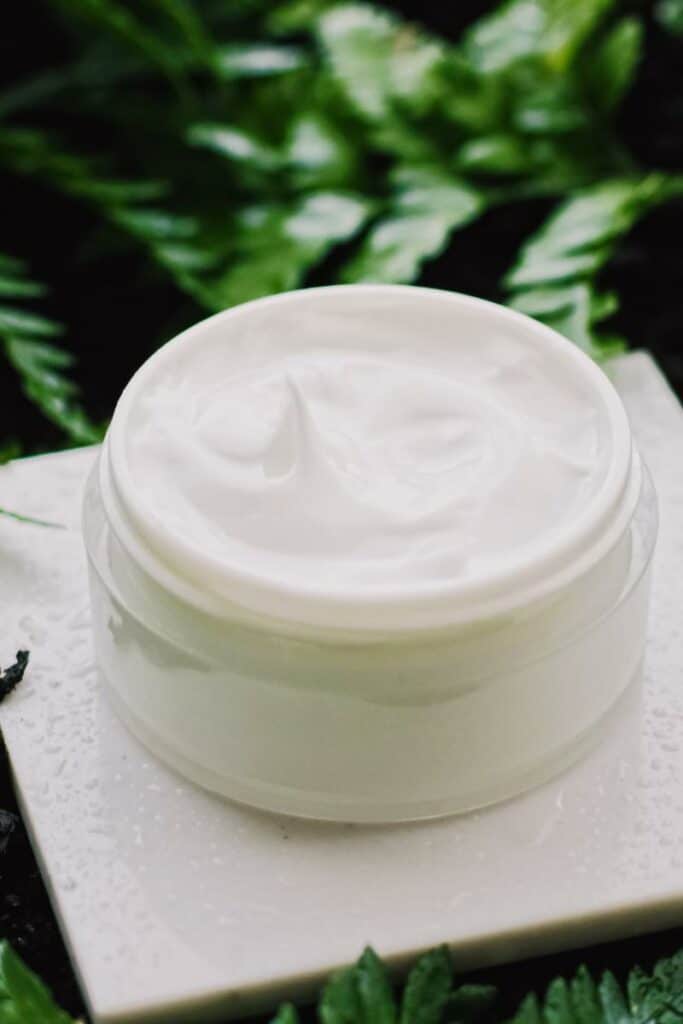
This Whipped Tallow Face Cream is perfect for keeping your skin from getting dry and is a smart choice if you care about nature.
What Is Tallow and Why Use It for Skincare?
Tallow is essentially beef fat that has been rendered (melted down and purified) for use in skincare products. It's a traditional ingredient that has been used for centuries, but it's making a comeback in modern natural skincare practices. The process of rendering tallow cleans it by removing impurities and preparing it to be a clean and beneficial product for topical use.
It's often praised for its compatibility with human skin because it closely mimics the fatty acids in our skin cells. It's used in skincare for its moisturizing and protective properties, making it an excellent ingredient for mature, sensitive, dry skin, or even acne-prone skin!
4 Benefits of Whipped Tallow Face Cream
1. Moisturizing
Tallow is super for making your skin smooth because it soaks in deep and helps keep your skin moist for a long time. This is especially great if you have dry patches that feel rough and look flaky. Tallow works like a drink of water for your skin, filling it up so it feels soft and stays healthy. It doesn't just sit on top of your skin like some lotions; it actually gets absorbed, helping to heal dry spots from the inside out.
2. Anti-inflammatory
If your skin ever gets red, itchy, or puffy, tallow can be a big help. It’s really calming for irritated skin. This is because tallow has what's called anti-inflammatory properties, which means it helps reduce inflammation or swelling. This can be a relief if you have skin issues like eczema, where your skin might get inflamed easily. Using tallow face cream can help keep your skin calm and comfortable.

3. Good for All Skin Types
No matter if your skin is dry, oily, or somewhere in between, tallow cream is a good choice. It balances your skin by providing moisture without making it oily, which is why it works well even for oily skin types. For older skin, tallow is wonderful because it helps keep skin flexible and soft, reducing the look of lines and wrinkles. It also helps young skin stay healthy, making it a good choice for every age.
4. Saves Money and Helps the Earth
Making your own whipped tallow face cream is not only fun but also really smart. It saves you money because you’re making high-quality skin care products at home instead of buying expensive creams at the store. Also, by making your own, you know exactly what’s going into it—no weird chemicals or things that might irritate your skin. Plus, you help the earth by reducing plastic waste. Store-bought creams often come in plastic containers, but when you make your own, you can reuse jars you already have at home, which is much better for the planet.
5 Uses for This Whipped Tallow Balm Recipe
Whipped tallow balm is a versatile, natural skincare product that can be used in various ways to nourish and protect your skin. Here are five practical uses for this wholesome balm:
1. Moisturizer for Dry Skin
Use this tallow balm as an intensive moisturizer for areas prone to dryness, like elbows, knees, and heels. Its rich texture deeply hydrates and softens the skin, providing relief from dryness and making skin feel silky smooth.
2. Night Cream
Apply the whipped tallow balm to your face before bedtime. Its dense nutrient profile supports skin regeneration during the night, helping to reduce the appearance of fine lines and wrinkles, and leaving the skin plump and hydrated by morning.
3. Hand Cream for Dry Hands
Perfect for soothing and healing cracked and chapped hands, especially during colder months or after frequent hand washing. Its barrier-forming properties help protect your hands from further damage while healing the existing roughness.
4. Treatment for Diaper Rash
The anti-inflammatory and protective properties of tallow make this balm an excellent choice for treating diaper rash in infants. It can soothe irritation and create a moisture barrier that protects against dampness, helping to heal the rash quickly and gently.
5. Soothing Balm for Minor Burns and Scrapes
Tallow's natural healing properties can help soothe and repair the skin when applied to minor burns and scrapes. Its content of essential fatty acids aids in calming inflammation and accelerating the skin's repair process.
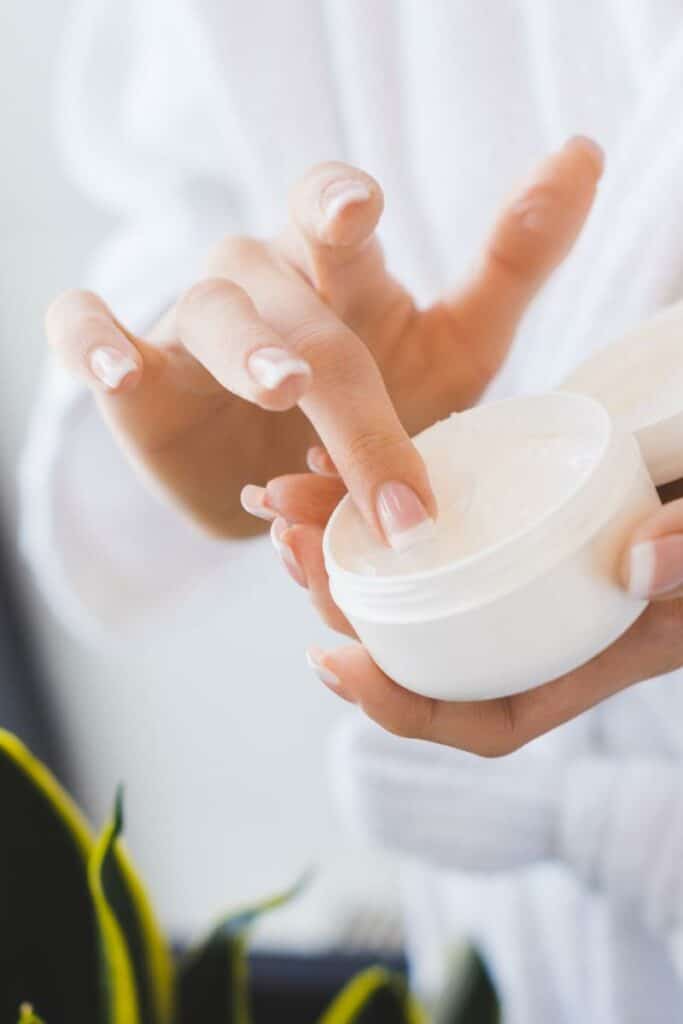
5 Tips To Remember When Using Tallow Cream
- Start with a Small Amount: Tallow cream is highly concentrated and rich, so a little goes a long way. Begin with a small dab and increase as needed, especially if you are using it on your face or other sensitive areas.
- Warm It Up: Before applying, warm the tallow cream between your fingers to soften it. This makes it easier to spread and ensures it absorbs more effectively into your skin.
- Apply to Damp Skin: For best results, apply tallow cream to slightly damp skin. This helps lock in moisture and makes the cream spread more easily, especially after a shower or washing your hands.
- Consistency in Use: For best results, use your tallow cream consistently. Regular use can help improve skin texture, elasticity, and moisture levels.
- Be Patient: Natural products like tallow cream might take a little longer to show results compared to chemical-based products. Give it time to work its magic on your skin.
How To Make Your Own Whipped Tallow Face Cream
Ingredients
- Grass-fed beef tallow: This is your base ingredient. About 1 cup of tallow will do. You can purchase rendered tallow or render your own from beef fat, which might be available at your local grocery store or from a local farmer who raises grass-fed cows.
- Carrier oils: Choose a carrier oil to mix with the tallow to soften and enhance its application. Good options include 1/4 cup of olive oil, jojoba oil, or sweet almond oil. Each has its benefits: olive oil is great for skin repair, coconut oil for its antibacterial properties, and sweet almond oil for its gentleness on sensitive skin.
- Essential oils: About 12-15 drops of your favorite essential oil will add fragrance and additional skin benefits. The choice of essential oils depends on your skin concerns and preferences. For anti-aging properties, consider rosehip or frankincense oil. For calming effects, lavender or chamomile are excellent choices. Always ensure the essential oils are skin-safe and suitable for facial use. Whichever essential oil blend you choose, be sure to use at least 1 ounce carrier oil to every 12-15 drops essential oil (as per safe EO standards).

Tools
- Small saucepan or double boiler: To gently melt the tallow.
- Mixing bowl: To whip the cream.
- Hand mixer or stand mixer: For whipping the cream to the right consistency.
- Glass jar or storage container: To store the finished cream. Make sure it's clean and dry.
Step-by-Step Whipped Tallow Face Cream Recipe
- Rendering the Tallow (if needed):
- If starting with raw beef fat, chop it into small pieces or grind it to speed up the melting process.
- Place the fat in a small saucepan or double boiler and melt it over very low heat. This slow process ensures you keep the beneficial properties of the fat.
- Once melted tallow, strain the liquid through a fine mesh to remove any solids. Allow the clean tallow to cool slightly but not harden.
- Mixing Your Cream:
- Scoop the slightly cooled, semi-solid tallow into a mixing bowl.
- Using a hand mixer, whip the tallow on medium speed until it becomes light and fluffy, which might take about 5-8 minutes.
- Adding Oils:
- Gradually pour in your chosen carrier oil while continuing to whip the mixture. This helps to soften the tallow and makes the cream easier to apply.
- Add your chosen essential oils drop by drop, continuing to whip the mixture to fully incorporate the oils. This infuses the cream with pleasant scents and additional skin-healing properties.
- Storing:
- Once your cream is well mixed and maintains a fluffy consistency, transfer it to your glass jar or storage container.
- Store the whipped tallow face cream in a cool, dry place. The bathroom cabinet or a bedroom dresser away from direct sunlight is ideal. The cream should maintain its quality for several months.
Usage Tips
- Use a small amount of the whipped cream as a little goes a long way. It's best applied after washing your face (while it's still a little damp, as it can lock that moisture in), either in the morning or before bed.
- If you live in a very warm climate, you might want to keep the cream in the refrigerator to keep it solid and prolong its shelf life.
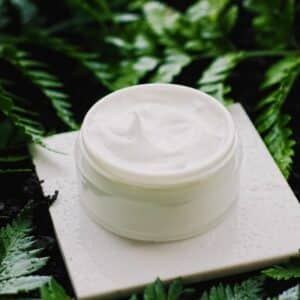
Whipped Tallow Face Cream
Ingredients
- 1 cup grass-fed beef tallow
- 1/4 cup olive oil or jojoba oil or sweet almond oil *any oil that is non comodogenic*
- 12-15 drops of essential oil such as lavender or chamomile
Instructions
- If your tallow is solid, gently melt it using a small saucepan or double boiler over very low heat. Stir occasionally until completely melted.
- Once melted, allow the tallow to cool until it is just beginning to solidify but is still somewhat soft.
- Transfer the semi-solid tallow to a mixing bowl.
- Use a hand mixer or stand mixer on medium speed to whip the tallow. Continue whipping until it becomes light and fluffy, which should take about 5-8 minutes.
- Slowly incorporate the carrier oil into the whipped tallow while continuing to mix.
- Add the essential oils drop by drop, and mix thoroughly to ensure even distribution throughout the cream.
- Spoon the whipped cream into a clean, dry glass jar or storage container.
- Seal the container and store in a cool, dry place away from direct sunlight.
Notes
How Long Does Homemade Whipped Tallow Face Cream Last?
When stored properly in a cool, dark place, whipped tallow face cream can last for 3 to 6 months. If you notice any change in smell, color, or texture, it's best to discard the product as these changes can indicate spoilage.
A couple options to extend the shelf life of your own tallow balm, is to add vitamin E (which can keep oils from going rancid), tea tree oil (a natural antibacterial), or both. These additives not only enhance the balm's preservative qualities but also contribute additional health benefits for your skin.
Troubleshooting Your DIY Whipped Tallow Face Cream
- Scent: If you don’t like how it smells, add more of the essential oils. Just be sure you're using safe standards of essential oils, especially when applying to your face.
- Texture: If it’s too hard or too soft, change how much oil you use next time. More oil = softer tallow. Less oil = harder tallow.
- Greasiness: A great option for reducing the greasy feeling of tallow is to add a little arrowroot powder. For this recipe, I would use about 1 tablespoon and whip it in after the tallow has cooled, while adding the oils.
Frequently Asked Questions
Can I add other ingredients like honey or aloe vera to my tallow face cream?
Absolutely! Ingredients like honey and aloe vera can enhance the moisturizing and healing properties of your face cream. Honey is a natural humectant that attracts moisture, and aloe vera is renowned for its soothing effects. Just make sure to incorporate them correctly to maintain the cream’s consistency.
Is it necessary to whip the tallow for the face cream?
Whipping tallow incorporates air into the fat, making it lighter and fluffier, which results in a cream that's easier to apply and absorbs better into the skin. While it's not strictly necessary, whipping improves the texture significantly. You could choose to not whip your tallow face cream, and it would technically be a tallow face balm.
Do I need to refrigerate my whipped tallow cream?
Refrigeration is not required unless you live in a very warm climate where the cream might melt. However, keeping it in a cool place (or at least room temperature) extends its shelf life and maintains its whipped consistency.
Is tallow face cream vegan?
No, since tallow is derived from animal fat, it is not vegan. For a vegan alternative, you could consider using plant-based butters like shea butter or cocoa butter, which also offer excellent moisturizing properties.
Can I use tallow face cream if I have oily skin?
Yes, you can use tallow face cream even if you have oily skin. Tallow is naturally nourishing without clogging pores. It helps balance skin's natural oils, which can actually reduce excess oil production over time.
Can whipped tallow face cream cause allergic reactions?
As with any skincare product, there's a potential for allergies, especially if you're sensitive to beef products or certain essential oils. It's always a good idea to patch test a small amount on your skin before applying it more broadly.
Can I use a different carrier oil?
Absolutely! Choose a carrier oil that suits your skin type or preference. Each oil has unique benefits, such as coconut oil for its antibacterial properties.
Can I add other essential oils?
Yes, feel free to customize the scent and therapeutic properties of your face cream by using different essential oils. Always ensure they are safe for skin use and consider potential skin sensitivities.
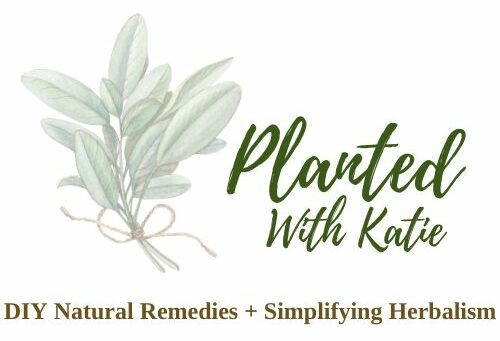
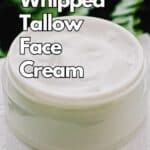


Made some whipped tallow face cream? What was your favorite way of making it?